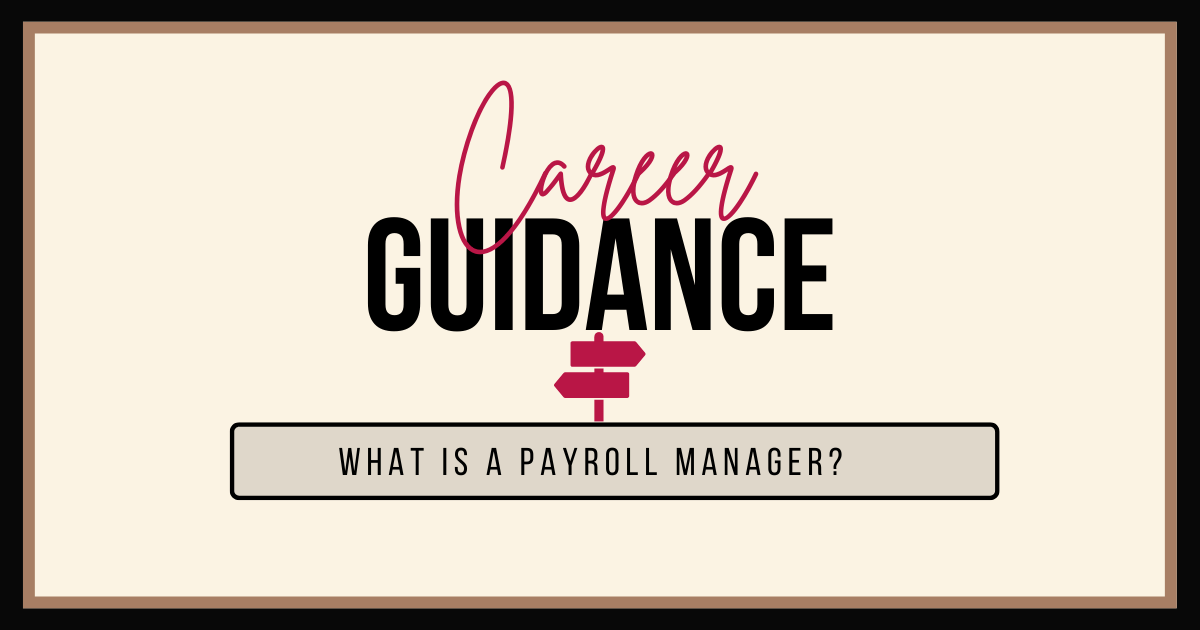
What is a Payroll Manager?
Payroll management is vital to the functioning of any workplace. Payroll manager is a finance professional, meaning that they are comfortable and skilful with financial matters, including, but not limited to, payment. Arguably, payroll is one of the most important features to a functioning work environment, and for that reason, the payroll manager is a critical role. As payroll manager, you essentially bear the responsibility for all payment processes within the business. This includes payslips, liaising with accounting, revenue reporting, and delivering 3rd party files to ROI payroll. As payroll manager, you are also responsible for maintain accurate records of employment, including hiring, firing, and pay changes for employees. You also tend to be an extremely important HR contact, and often act as a HR representative.
So what are the skills that are required to succeed as a payroll manager?
Firstly, it is vital to have strong organizational and administrative skills. Payroll is hugely detail-oriented and number-focused. It is a good idea to have strong administrative and attention to detail skills, similar to those that are necessary for accounting.
What is the difference between a Payroll Specialist versus a Payroll Administrator?
Though, as payroll manager, there are necessary skills that lean towards accounting or administration, in working in payroll, there is a slight but important distinction between the job titles related to working in payroll. Essentially, a payroll administrator versus a payroll specialist helps to illuminate these distinctions. Payroll manager refers to a similar role as a payroll administrator in terms of overseeing the entirety of payroll as a department, rather than simply the payroll duties of an individual department. With this distinction in mind, a payroll manager or a payroll administrator has a lot of clerical duties, focused on the organizational skills necessary to be able to ensure the timely, regular payment of employees as a whole. Oftentimes, also responsible for organize the compensation required based on hours worked on a broad scale. A payroll specialist, on the other hand, is more centred on the individual payroll and ensuring that each employee is paid for their work and for their time. They often also use a lot of accounting skills and handle the accounts for the business and the individual.
Responsibilities of the Payroll Manager
While the responsibilities of the payroll manager is essentially ensuring that all individuals get paid for their work, this requires a lot of organizational, accounting, and administrative focus. As well, they require a good bit of knowledge on the accounting process and accounts administration to be able to perform the duties as required. On a day to day basis, a payroll manager is also a people- centred position, so friendly attitudes and ability to communicate key information are vital to the job description. Responsibilities that come with being an important point of contact in the HR department, including handling complaints, problems, and client requests is key, and its essential that a payroll manager is able to provide friendly support. On the other side of this, payroll managers are in charge of the entirety of processing the payroll each week, or each payment term, and at the end of the year payroll as a whole. As a finance professional, is it incredibly important to be able to use the vital payroll and financial systems, like the Resourcelink payment calendar.
Experience and Skills
There are a number of super important skills to be a successful payroll manager, not solely limited to the organizational, administrative, accounting, and social skills we have already discussed. Oftentimes, payroll managers requires a knowledge of payment software and necessary qualifications. Payroll software like PAYE, PRSI, and USC are all necessary aspects to working as a payroll manager. These programs and software are vital to being able to perform all necessary duties in a timely and legal manner. On a CV when applying for a payroll manager position, its great to highlight working with these payroll software or any experience with them or similar ones.
Similarly, like other finance professional careers, payroll management oftentimes requires specific coursework and qualifications. Specifically, usually one must have an IPASS qualification, which is the Irish Payroll Association’s course. There are a number of payroll courses, both online and in person, that can be hugely beneficial in creating a CV for a payroll job. Oftentimes, qualifications through online payroll courses with the Irish Payroll Association or with another similar organization are necessary. If you feel that perhaps payroll management is a good career fit for you, there are a number of online resources and payroll courses themselves that can help jumpstart your CV for a payroll management job.
Job Expectations
This is all to say that payroll management is a vital, but also difficult career, which requires knowledge of a number of specific payroll software, government regulation organization, interacting with clients and employees, and specific certification in order to get a payroll job. However, this career is also hugely rewarding. Essentially, the payroll manager is in charge of one of the most important aspects to any successful business. On top of that, payroll management is a comfortable career. According to Indeed.ie, the average income of a payroll manager in Ireland is €58,236.
Conclusion:
This is all to say, payroll management is a difficult career, that works at the intersection of Human Resources at accounting, and requires the technical skills of the latter, and the personal skills of the former. However, it is also a rewarding, and vital job that is necessary to the functioning of any business or work life.